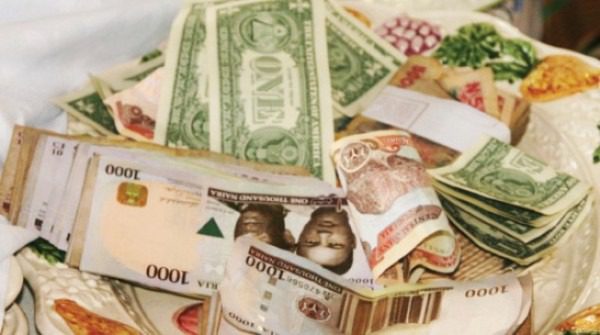Economic Issues
Salary Increment Or Stronger Naira -By Marie Obiora


When I go to the market with a list in one hand and money in the other, I discover that somewhere along the line the money has run out but I still have a few unpurchased items on my list. This has been going on for many months and I am certain that I’m not the only person experiencing this. If I decide to put a price beside the listed items, I discover that prices have increased and I still end up not purchasing everything on my list. It is therefore not surprising that a group of people are clamoring for an increase in salaries. Prices of commodities have sky rocketed in the past few years and salaries have remained the same. The standard of living has dropped noticeably.
Before we begin to demand for an increase in salary, let us consider; what caused the increase in prices, what effect increasing salaries will have on the economy and if there is an alternative solution to the problem at hand. The sudden increase in the price of imported goods was due to the fact that crude oil which Nigeria depends on as her main source of foreign exchange lost its value. This loss of value is sadly not temporary as foreign countries are looking to other sources of energy apart from crude oil. The naira therefore lost value which resulted in an increase in prices of imported goods. Nigeria imports almost everything her citizens consume and quite naturally prices of commodities have sky rocketed.
Now that we have identified the cause of the increase in prices of commodities, let us consider the effect increasing salaries will have on the economy. An increase in salaries will only result in further increase in prices of commodities; this will further reduce the value of the naira. If we are not careful, we will get to the point where a bottle of soft drink will sell for =N=500.00. The question we should then ask ourselves is: what do we really want? I believe we would all like to go to the market with a list in one hand, money in the other and come out of the market with all the items on the list purchased and some money left in our wallets.
In order for this to happen we need to strengthen the naira, increase its value and therefore its purchasing power. We can achieve this by reducing our dependence on imports i.e. buy Nigerian made goods, refine crude oil to get petrol, kerosene and diesel and stop importing these fuels. On an individual basis, every Nigerian should endeavor to grow some food this year. We can each plant a fruit tree or if there is no land, we can buy a trough and make a small vegetable garden. We can also go home to the village and plant one or two fruit trees. In a few years’ time Nigeria will be awash with fruits but since we have an urgent problem at hand we might all consider growing maize this year. Every available piece of land should be used to grow maize; Sidewalks on the road and empty pieces of land behind offices. Maize can be grown twice in a year and it is food for babies, the elderly and adults. An abundant harvest will drive food prices down; this has been done once before in this country and it is time we all did it again.
Nigerians are hungry and large scale farming is the answer. We have the fertile land to grow our own food but we have collectively lost interest in agriculture. Sadly, the few farmers we have are being harassed and killed in their farms by gunmen. This is not the time for this sort of confusion as this will only result in a further increase in the price of food stuff since less food will be grown by the harassed farmers.
I urge everyone clamoring for an increase in salaries to take a step back and consider the fact that it will only make matters worse and hurt our already bad economy further. Unfortunately there is no short cut solution to the current economic problem Nigeria is facing. One thing is needed and that is national cooperation. We all need to come together and solve our problem; this can be achieved by improving the purchasing power of the Naira.



















